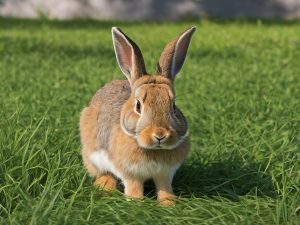Can Rabbits Eat Bermuda Grass? Diet, Safety & Nutritional Insights
Bermuda
Bermuda Grass: What Is It?
Bermuda grass, scientifically termed as Cynodon dactylon, is native to the tropical and subtropical regions of the world. It’s characterized by its fine texture, deep green color, and ability to spread rapidly, either through its robust root system or seeds. People prize it for its drought tolerance and the dense cover it offers, making it an excellent choice for lawns, athletic fields, and golf courses.
Can Rabbits Eat Bermuda Grass?
The simple answer is: Absolutely! Rabbits are natural grazers, and grass forms the basis of their diet in the wild. Bermuda grass, with its soft texture and organic matter, is easily digestible for rabbits. If you’ve ever seen wild rabbits in a field, there’s a good chance they’re feasting on grass, and Bermuda grass would be a delightful choice for them.

The Ideal Quantity: Moderation is Key
While Bermuda grass is safe, how much of it should a rabbit consume? The essence of a rabbit’s diet should be
For a medium-sized rabbit, a handful or two of fresh Bermuda grass daily is a good measure. It’s essential, though, to ensure that it’s clean, free from pesticides, and hasn’t been treated with any chemicals.
Nutritional Benefits of Bermuda Grass
Fiber Content:
Bermuda grass is rich in fiber, which is paramount for a rabbit’s health. It aids digestion and helps in preventing gastrointestinal stasis, a common health issue in rabbits.
Vitamins and Minerals:
Though grass isn’t a primary source of vitamins and minerals, it does contain some essential nutrients like calcium and phosphorus in trace amounts that contribute to the overall health and well-being of the rabbit.
Natural Dental Care:
One interesting fact about rabbits is that their teeth grow continuously. Chewing on grass, including Bermuda grass, naturally grinds down their teeth, preventing overgrowth and related dental issues.
Any Potential Warnings?
While Bermuda grass is generally safe, there are a couple of things to keep in mind:
- Pesticides and Chemicals: If you’re sourcing Bermuda grass from your garden or buying it, ensure it’s free from chemicals and pesticides. These can be harmful, if not fatal, to rabbits.
- Sudden Diet Changes: If you’re introducing Bermuda grass or any new
into your rabbit’s diet, do it gradually. A sudden change can upset their stomach. Start with a small quantity and observe for any signs of discomfort or allergies.
Similar Foods and Fruits
Diversifying your rabbit’s diet ensures they get a broad spectrum of nutrients. Other grass varieties, like Timothy grass or Orchard grass, can be an excellent alternative to Bermuda grass. And speaking of diversification, introducing
In Conclusion
Bermuda grass can be a nutritious and enjoyable addition to your rabbit’s diet. It’s safe, easily digestible, and offers a few health benefits. Like all foods, it’s best offered in moderation and as part of a varied diet that includes other hays, fresh
Can Rabbits eat Bermuda Grass?
| Feature | Description | References |
|---|---|---|
| Bermuda Grass | A type of grass commonly found in warm climates | 1, 2 |
| Nutritional value | High in fiber and low in protein | 1, 2 |
| Health benefits | Helps with digestion and prevents hairballs | 1 |
| Potential risks | Can cause digestive problems if fed in excess | 1, 2 |
| Feeding guidelines | Should be fed in moderation as part of a balanced diet | 1, 2 |
References:







Leave a Reply